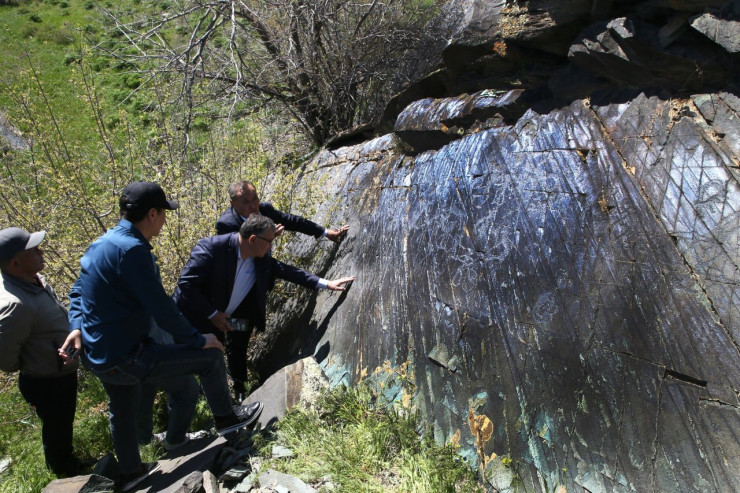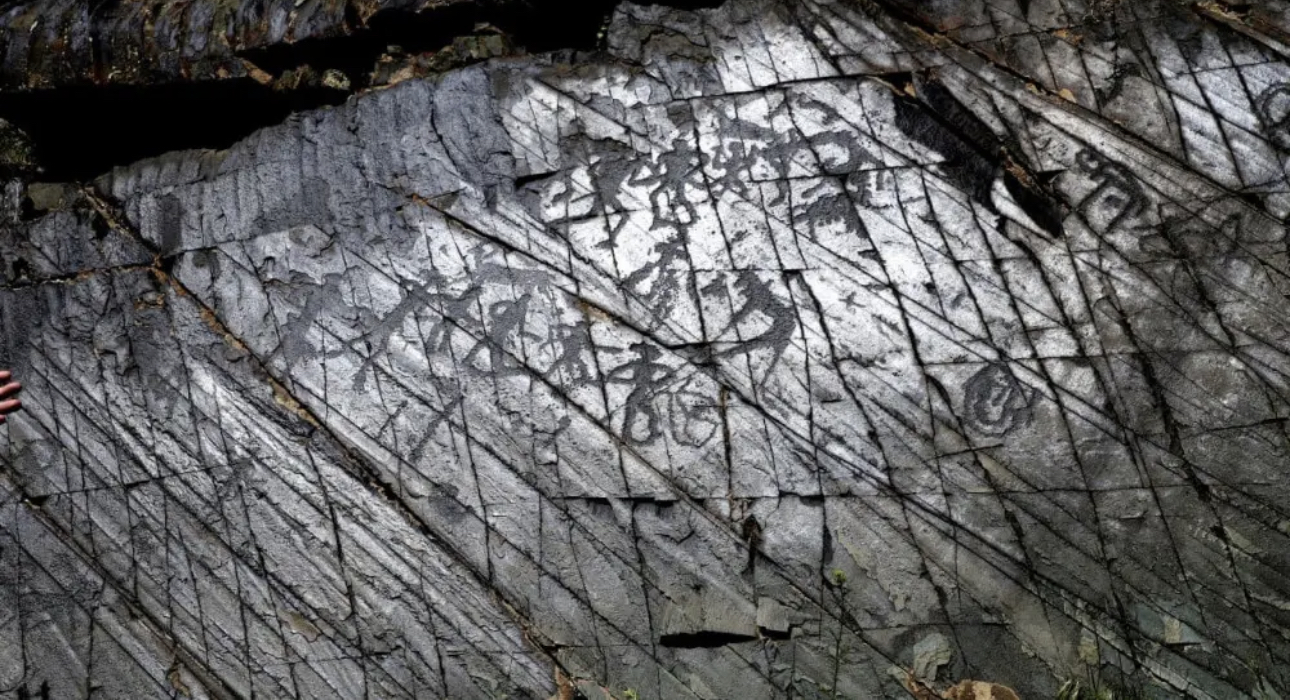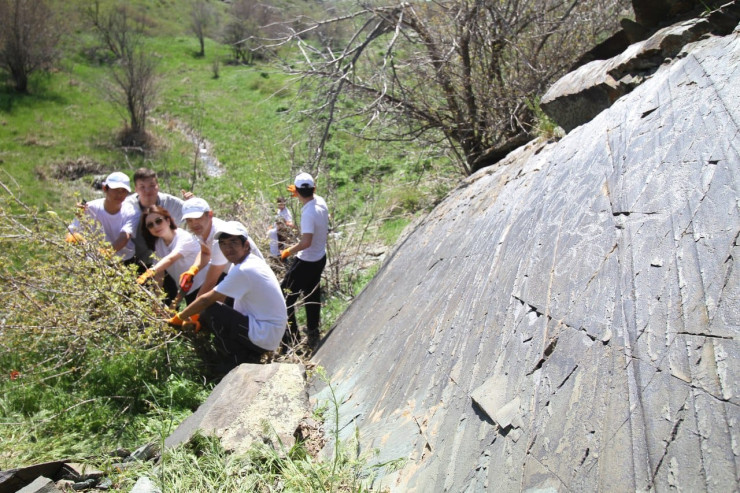ASTANA – Petroglyphs dating back to the Bronze Age were discovered by volunteers of the nationwide Taza (Clean) Kazakhstan environmental campaign in the Zhambyl region, reported Tengrinews.

Archeologists and historians examining petroglyphs in the Zhambyl Region. Photo credit: Department of Internal Policy of the Akimat of the Zhambyl Region
During the campaign’s second week, dedicated to landscaping efforts around historical and cultural monuments, the rock carvings were spotted at the base of the towering ridges, approximately 3.5 kilometers from the Aktogay village in the Sarysu district.
“We stumbled upon very unusual drawings, and to understand their significance, we sought the expertise of archeologists. We hope this discovery will shed new light on history,” said volunteer Assylzhan Pazylbekov.
Based on the Khabar 24 report, archeologists uncovered over 100 petroglyphs dating back to the Bronze Age and the Early Iron Age. These petroglyphs depict the daily lives and worldviews of people of that era, and they feature elements of hunting and animals such as argali, sheep, and double-humped camels.

Newly discovered petroglyphs dating back to the Bronze Age. Photo credit: Department of Internal Policy of the Akimat of the Zhambyl Region
According to Sauran Kaliyev, an archeologist and historian, the finding comprises a 20-25 meter long and 1.5-2 meters high mountain layer. Discovering an artifact with abundant images on one surface is rare for the Zhambyl Region. These types of rock art were found and studied at sites including Arpaozen, Koibagar, Sauyskandyk, Eshikolmes, and Tanbaly Tas.
“The Karatau mountain range holds great historical and geographical significance. It is one of the unique sites of human civilization not only in the history of Kazakhstan but also in world history,” said Kaliyev.
Local archaeologists need support to pinpoint the exact date or determine the century to which the petroglyphs belong. A comprehensive study is required to achieve this. For an in-depth analysis of the rock art, archaeologists plan to enlist the expertise of renowned local and international specialists.

Photo credit: Department of Internal Policy of the Akimat of the Zhambyl Region
“We will continue our research and conduct a state examination as we intend to designate it a site of national or international significance to be included in the list of state-protected sites,” said Kuanysh Daurenbekov, director of the Directorate for the Protection and Restoration of Historical and Cultural Monuments.
Based on the insightful findings obtained by Tengrinews following its inquiry into the Zhambyl Region Akimat (administration), there are 3,468 historical and cultural monuments in the Zhambyl Region. Five monuments, including the settlements of Balasagun, Kulan, Ornek, Kostobe, and Akyrtas are under UNESCO protection. Meanwhile, 25 are of national significance, 698 are of local significance, and 2,742 are on preliminary registration. All are protected by the law on the protection and use of objects of historical and cultural heritage.
Last year, 46 historical monuments were discovered in the region, and experts anticipate this finding will contribute to this list.

